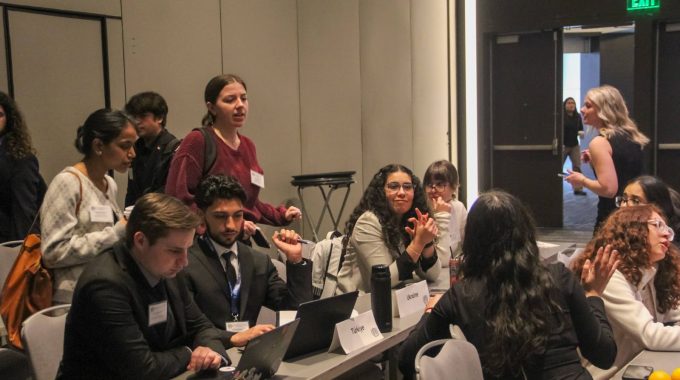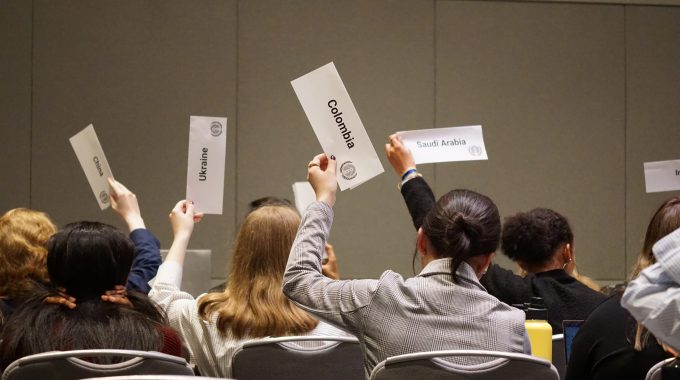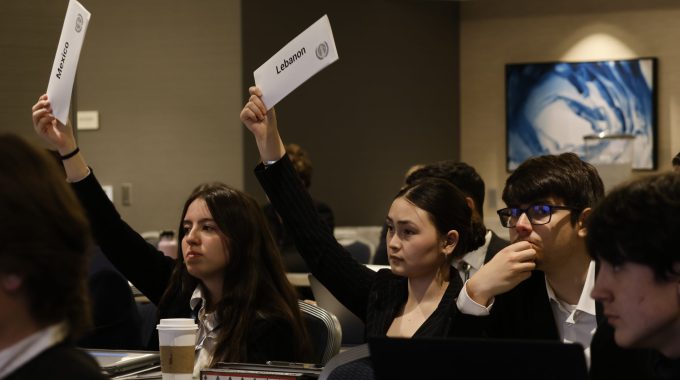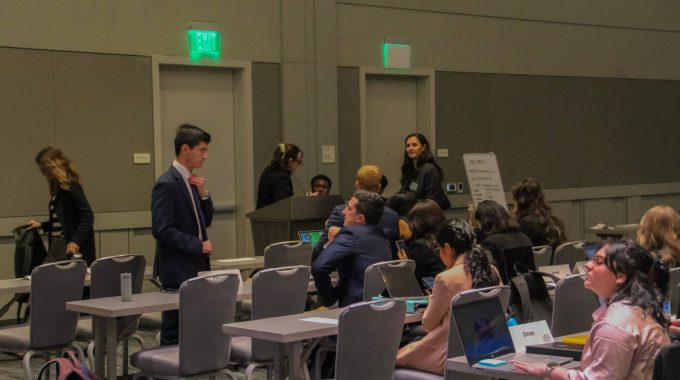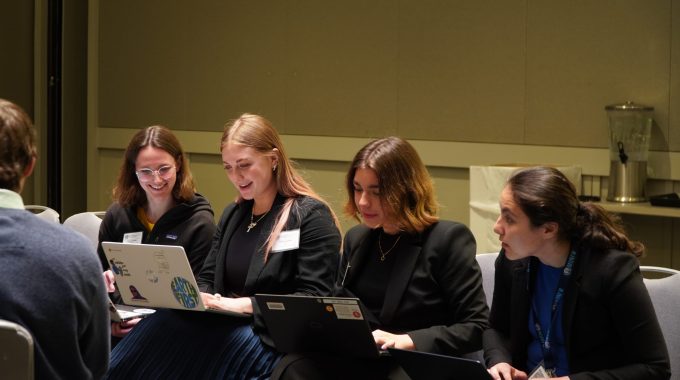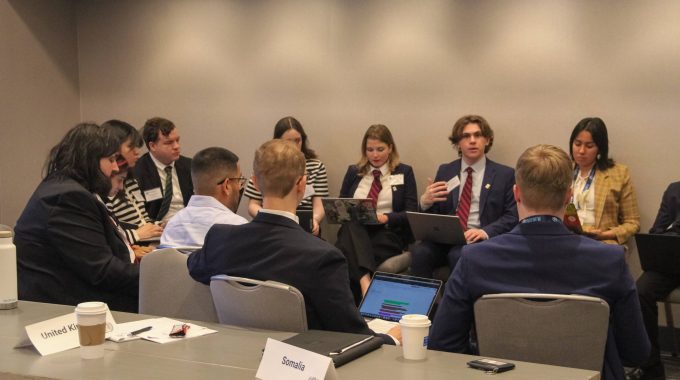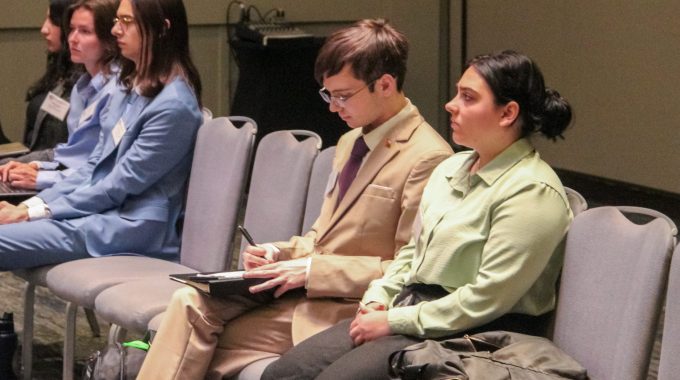Discord in the Green Zone: Tackling Global Environmental Challenges at UNEA
As the delegates gather in the United Nations Environment Assembly (UNEA), they confront some of the most pressing environmental challenges of our time. From war-torn landscapes and degraded ecosystems to overfished oceans and disappearing biodiversity, the stakes are high. These challenges are no longer future concerns, but present-day emergencies that demand global consensus.
Adding to the urgency is the 2050 global climate target, a commitment by the United Nations and its member states to achieve net-zero greenhouse gas emissions by mid-century. Failing to meet this milestone could result in irreversible damage to ecosystems, catastrophic climatic events, and the collapse of vulnerable communities.
With just 25 years left to hit this critical benchmark, the decisions made today, in bodies like UNEA, carry immense weight for the future. This year’s MUNFW theme, “Chaos and Consensus,” especially reflects the momentous act delegates must perform like balancing national interests with collective responsibility in a fragmented international landscape.
Yet, through caucusing, alliance-building, and the exchange of innovative ideas, delegates are working to transform discord into unity and fears into hope. By engaging in open dialogue and seeking globally inclusive solutions, delegates strive to build resilient policies that protect the environment and promote sustainability in an increasingly unpredictable world.
Voices from the UNEA Delegates: Perspectives on Key Issues
Korea sets a forward-looking tone, emphasizing both national responsibility and global solidarity Korea shares, “The children of the future don’t want our excuses, they want our efforts.” Korea adds, “While Korea is making a lot of strides to mitigate environmental effects, we understand this is an issue that everyone is facing, and we would like to promote global solutions.”
Following that, France raises concerns about justice and equity for those most impacted by environmental fallout during conflict. France states, “France is disappointed in the lack of a unanimous consensus for seeking monetary reparations for individual countries disproportionately affected by environmental damage during times of conflict.”
Rising Tensions: Unexpected Alliances and Compromises
However, tensions have arisen within the UNEA, as Russia unexpectedly supported a resolution with the European bloc, on the condition that a stipulation clause be included in the draft. This move is notably uncharacteristic of their usual stance.
Italy expressed concern about the perceived inconsistencies in Russia’s approach to recent resolutions, noting, “The Russian delegation has taken varying positions on some resolutions, which has led to questions about alignment with their national stance.” Italy continues, “There was an instance where Russia showed interest in joining a resolution involving Ukraine and other allied countries, but later reassessed their participation as it became challenging to align the resolution with their national interests.”
Russia’s actions were viewed by some delegates as more symbolic than substantive. Italy adds, “Russia then proceeded to try and call a ceasefire with Ukraine to rejoin the resolution which is not what Russia would sincerely do.”
Ukraine made its position clear on the matter, emphasizing its diplomatic boundaries, proclaiming, “Ukraine would not sign a resolution with Russia. The European Union argued that they would not sign the resolution.”
This standoff underscores the broader challenges of reconciling political realities and perspectives with environmental goals, a challenge that UNEA delegates must tackle head-on.
Fishing for Consensus
Among the urgent issues on the diplomatic table, sustainable fishing practices has emerged as a critical point of concern. Overfishing, habitat destruction, and illegal fishing practices are pushing marine ecosystems across the globe over the brink. Delegates within the UNEA recognize this concern, especially amongst coastal and island nations.
The United States proposed creating a shared international database to track fishing activities, stressing that American fisheries are fiscally recovering and that the United States seeks dominance in the global fishing industry. The United States delegate proclaims, “American interest cannot be diminished.”
Iran quickly responded, denouncing the United States’ position as selfish and expressing that this is not the time for power plays. Instead, Iran calls for a cooperative approach based on equity and respect for sovereignty.
The exchange between the United States and Iran highlights the growing divide between global environmental cooperation and national interests, a tension that is not new to international diplomacy, with delegates continuing to negotiate a sustainable solution. As negotiations continue, many are calling on lessons from past environmental agreements to guide a more inclusive, collaborative path forward.
Consensus Prevails
Amidst the anticipated chaos of diverging national interests and urgent global challenges, delegates at the UNEA find consensus by focusing on shared goals, compromising where necessary, and emphasizing past experiences of international cooperation. By prioritizing the collective need for environmental sustainability, delegates navigate differences, build trust, and ultimately craft solutions that balance national priorities with the global good.
Kami Stanfield
World Press Reporter
Heidelberg University

